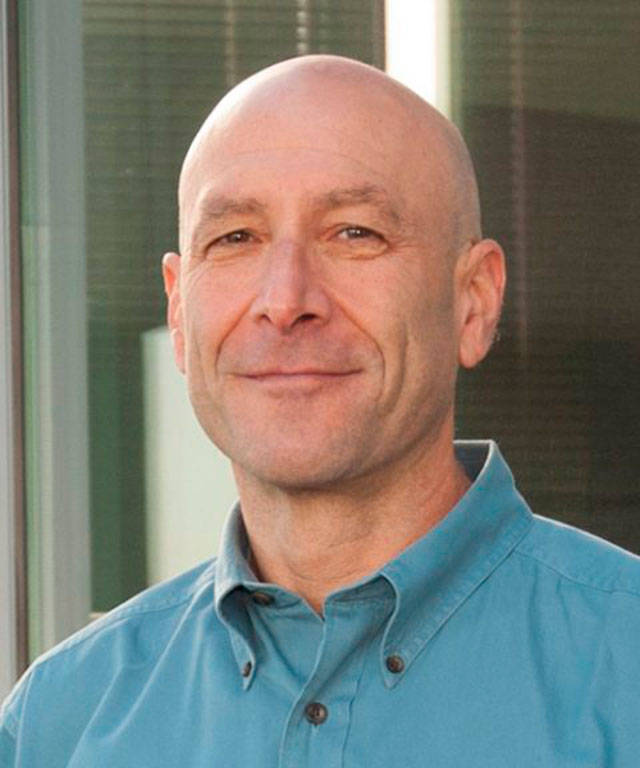The following was written by Dr. Jeffrey Scott Duchin for Public Health Insider:
Six months ago, after the release of the comprehensive Fourth National Climate Assessment, I wrote about the many harmful health effects due to climate change that we are currently experiencing and that we can expect to increase, such as longer and more severe pollen and allergy seasons; increases in asthma, cardiac and lung disease; food-, water- and vector-borne infections; and injuries and mental health effects from extreme weather events. We will suffer increasingly from rising temperatures, heat waves and heat-related illnesses, along with wildfires and the harmful health effects of wildfire smoke. By mid-century, if greenhouse gas emissions continue on their current pathway, the average year in Washington will be warmer than the hottest year of the 20th century.
The numbers of “billion dollar” climate and weather-related disaster events in the U.S. have been increasing steadily. Children, the elderly, people with underlying illness or disability, communities of color and low-income communities are especially vulnerable to the health consequences of climate change.
Climate change also is damaging our environment and recreational opportunities. Changes in snowpack and timing of snowmelt that threaten water reserves for energy generation, agriculture, and food production; cause flooding, and have multiple harmful effects on salmon habitat and survival. The economic losses in the U.S. are projected to be staggering – hundreds of billions of dollars per year in some sectors – with damage to critical infrastructure, property and labor productivity. The Climate Impacts Group at the University of Washington has summarized the consequences of climate change on Washington State.
In January, the World Health Organization (WHO) identified climate change and air pollution at the top of its list of global health threats in 2019. And since this is Public Health Week, it’s a good time to recognize in no uncertain terms that climate change is the greatest public health threat of the 21st Century. We agree with the American College of Physicians — climate change is happening now. A sense of urgency is warranted if we are to avoid the most catastrophic effects of continued global warming.
As public health professionals, we should follow the lead of the American Public Health Association, the American College of Physicians and other public health and medical professional organizations and prioritize action to help our communities adapt to and prepare for the impacts of climate change. This includes taking the critical and essential steps necessary to keep global warming from reaching levels that could have catastrophic effects on physical and mental health worldwide, along with massive economic losses, large-scale population displacement, global food insecurity, and resulting political instability.
Key areas for public health professionals to focus on include continuing to use science to inform decision making, educating other health professionals, students, the public, and elected officials about the health impacts of climate change, conducting vulnerability assessments in our communities for climate-related health risks, establishing surveillance systems to monitor the health impacts of climate change, facilitating steps to adapt to and prepare for the current and anticipated impacts of climate change in our communities, as well as identifying and supporting actions needed to prevent further climate warming by reducing greenhouse gas emissions. Special efforts are needed to identify vulnerable communities and ensure they are engaged and prepared so that they do not disproportionately suffer the impacts of climate change. At Public Health – Seattle & King County, we’ve developed a Blueprint for Addressing Climate Change and Health to guide our Department’s work.
To prevent the most catastrophic impacts of climate change on human health and society, we must rapidly transition to renewable clean energy. The U.S. ranks second in the world for carbon emissions from fossil fuel combustion, and globally, greenhouse gas emissions reached record high levels in 2018. To reach the goal of net zero emissions between 2050 and 2100 and limit the rate of global warming, the U.S. would need to rapidly phase out fossil fuel use.
And finally, it’s important to note that climate change mitigation policies will result in major health, as well as environmental benefits. Health co-benefits arising from greenhouse gas emission reduction policies include improved respiratory health from better air quality and reduced heart disease from walking and using other environmentally friendly active transportation.
As Public Health Week 2019 comes to a close, I hope that in the coming year, public health and health care professionals can galvanize together in collaboration with our communities to make meaningful progress on the urgent threat of climate change. Our house on fire – let’s act like it.
Jeffrey Scott Duchin, M.D., is a board certified physician at the Infectious Disease and Travel Medicine Clinic at Harborview and a UW professor of Allergy and Infectious Diseases and Medicine and adjunct professor of Epidemiology. He is also chief of Seattle and King County Public Health Communicable Disease Epidemiology and Immunization Section and director of Emergency Response for the WWAMI Regional Center of Excellence for Biodefense and Emerging Infections.


